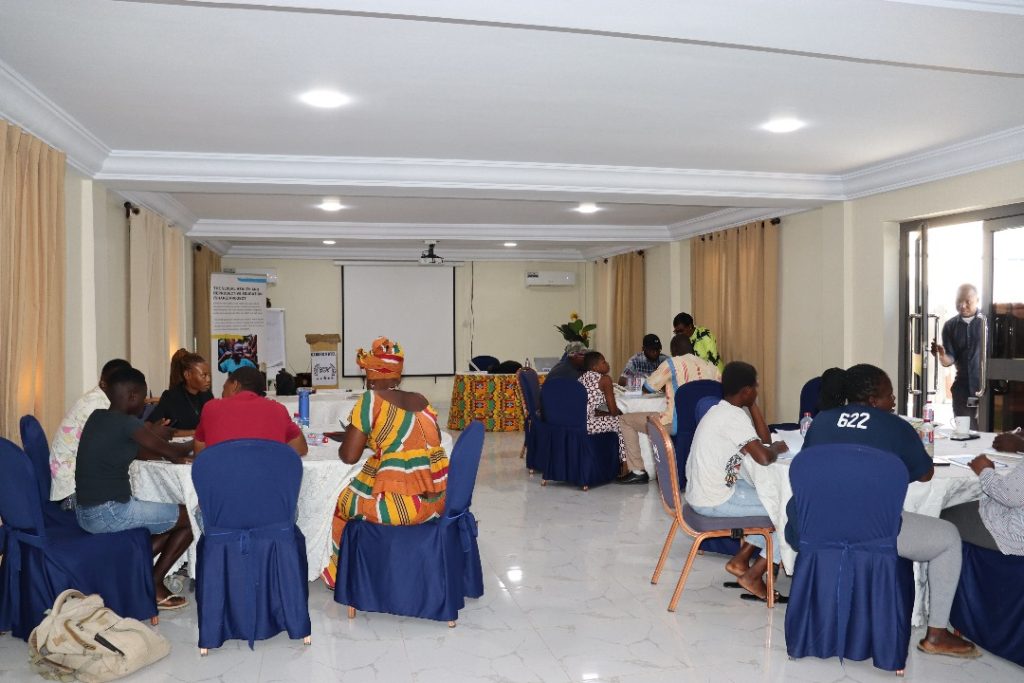By Anthony Adongo Apubeo,
Bolgatanga, Dec 12, GNA – As part of strategies to intensify advocacy on relevance of Adolescent Sexual and Reproductive Health and Rights, the Forum for African Women Educationalists Ghana (FAWE-GH), has engaged stakeholders to create jingles for public awareness campaign.
A jingle is a short song or tune used in advertising and for other commercial purposes and are written explicitly about the product, usually designed to be remembered.
The jingles to be produced would take into consideration cultural sensitivity and dynamics in local languages and aired on local radio stations with key messages that seek to educate the public and rally stakeholders to address issues affecting sexual and reproductive health and the rights of adolescents.
The stakeholders comprised traditional authorities particularly queen mothers, adolescents, media practitioners and creative writers to produce master scripts on issues such as teenage pregnancy, child marriage, gender-based violence, female genital mutilation, menstruation, widowhood rites, drug abuse, among others.
The move formed part of the implementation of a five-year Sexual Health and Reproductive Education (SHARE) project by a consortium, led by Right To Play and supported by WaterAid Ghana, FHI360 and FAWE-GH with funding support from the Global Affairs Canada.
The project being rolled out in the Kassena-Nankana and Builsa North Municipals, and Kassena-Nankana West and Bongo Districts aims to advance gender equality by providing access to age-appropriate sexual and reproductive education and gender responsive care for young people especially girls and young women.
Speaking on the sidelines of a three-day workshop to produce master scripts for the jingles in Bolgatanga, Mr Richard Amoani, National Coordinator, FAWE-GH, explained that as part of the project, his outfit was tasked to intensify campaign for stakeholders to prioritise ASRHR issues and work to address challenges confronting the growth of young people.

He said prior to the production of the jingles, community dialogues were held in the operational areas and the issues used for the production emanated from such dialogues as critical challenges that were still prevalent.
He added that through the community dialogues, radio sensitisations and jingles were proposed by stakeholders in the communities as channels through which issues affecting adolescents could be addressed.
The National Coordinator revealed that the project was working with three community radio stations namely the Bongo community radio in Bongo, Builsa Community Radio in Sandema and Nabina in Navrongo and eight information centres in the four Municipals and Districts in the region and the jingles would be aired by all of them.
He said the reason for producing the jingles in the local language was to ensure wider reach, promote ownership for the project from the local community, local content and ensure sustainability.
“We have already developed some of the scripts by experts but for us to ensure sustainability of the project and to ensure that the people whom we are playing the jingle to relate to it we are bringing people from the community so that they will ensure the jingles align with the cultural settings, environment and people,” he said.
GNA